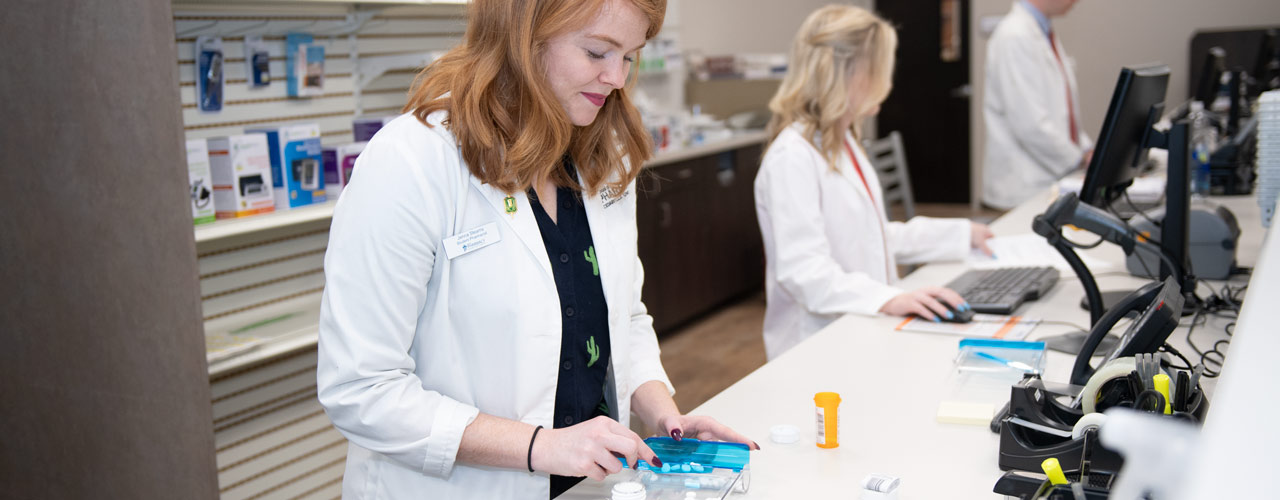by Natalia Kirychuk, Student Public Relations Writer
 Society has come a long way when it comes to medicine. New research comes out almost daily about the benefits of certain drug or treatment options. But sometimes a patient’s genetics are the greatest barrier to treatment success.
Society has come a long way when it comes to medicine. New research comes out almost daily about the benefits of certain drug or treatment options. But sometimes a patient’s genetics are the greatest barrier to treatment success.
There’s a doctor in Pennsylvania working to solve this issue.
— Ryley Uber
After graduating with a Pharm.D. from Cedarville University in 2018, Dr. Ryley Uber has been studying how genes affect a person’s response to certain drugs, otherwise known as pharmacogenomics. The new field combines the study of drugs (pharmacology) with the study of genes (genomics).
Uber is currently working on a project about stents, tubes inserted into a blood vessel after a heart attack to keep it open. His research and clinical practice investigates if a patient with a stent has a gene variant that will interfere with a certain blood-thinning medication that is commonly prescribed. The research and recommendations enable medical professionals to better recommend treatment options for patients.
Uber has been a fellow at the new Pharmacogenomics Center of Excellence at the University of Pittsburgh in Pittsburgh, Pennsylvania, since July 1, 2018. His fellowship is primarily research-based. Along with his research, Uber has published a textbook chapter update with mentor Dr. Philip Empey about his genotyping work.
Uber is also involved In a separate research project where patients at the University of Pittsburgh Medical Center (UPMC) may give a blood sample that is tested genetically to predict responses to many medications. Including additional samples from locations in and around central Pennsylvania, at least 150,000 samples will be collected with genetic results returned to patients, pharmacists and doctors.
During his time at Cedarville, Uber secured a prestigious internship with the U.S. Food and Drug Administration (FDA) at the National Center for Toxicological Research (NCTR). He continues to collaborate with NCTR with his current research.
“One of the biggest ways that Cedarville has helped me prepare for my career was in developing me clinically for what I’ve been engaging with,” said Uber. “They prepared me more than adequately to practice pharmacy. The faculty pushed me scientifically and helped me hone in on my research skills.”
“On the first day of pharmacogenomics class, Ryley had a big smile on his face when I asked the students who was interested in using this stuff to create disruptive change in the pharmacy world of personalized approaches to treat patients,” said Dr. Rocco Rotello, associate professor of pharmaceutical sciences. “He has demonstrated character and gained knowledge to become an expert in this field by taking on challenging new hurdles and the willingness to answer critics that believe this new field of pharmacy is not relevant.”
Located in southwest Ohio, Cedarville University is an accredited, Christ-centered, Baptist institution with an enrollment of 4,193 undergraduate, graduate and online students in more than 150 areas of study. Founded in 1887, Cedarville is recognized nationally for its authentic Christian community, rigorous academic programs, including its doctor of pharmacy program, strong graduation and retention rates, accredited professional and health science offerings and leading student satisfaction ratings. For more information about the University, visit www.cedarville.edu.



















